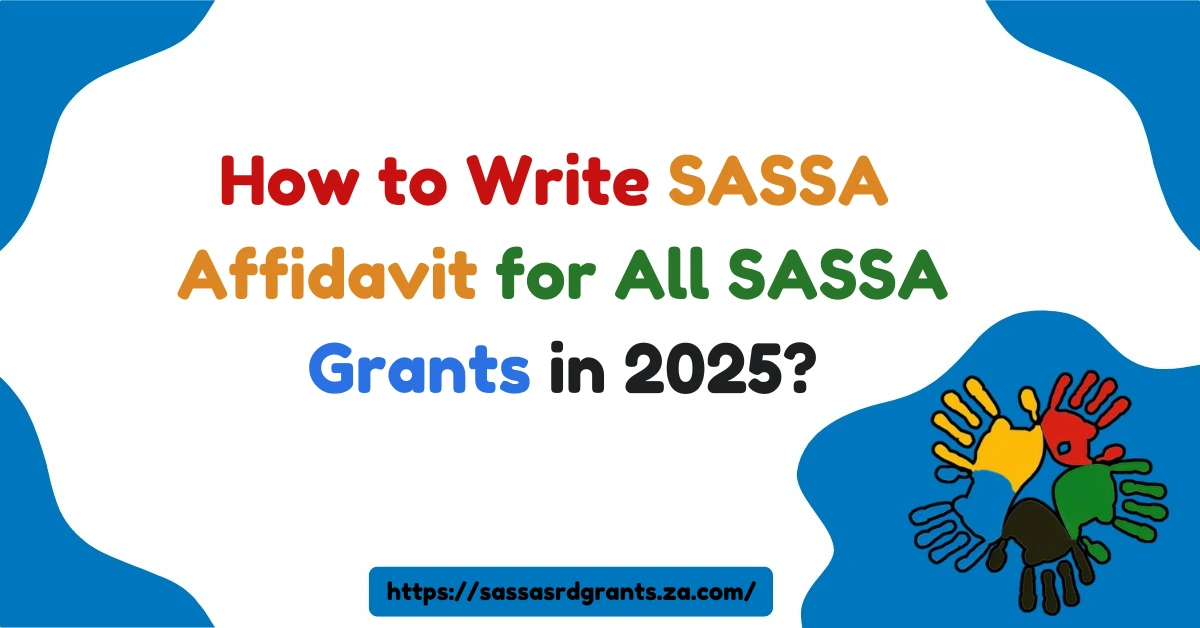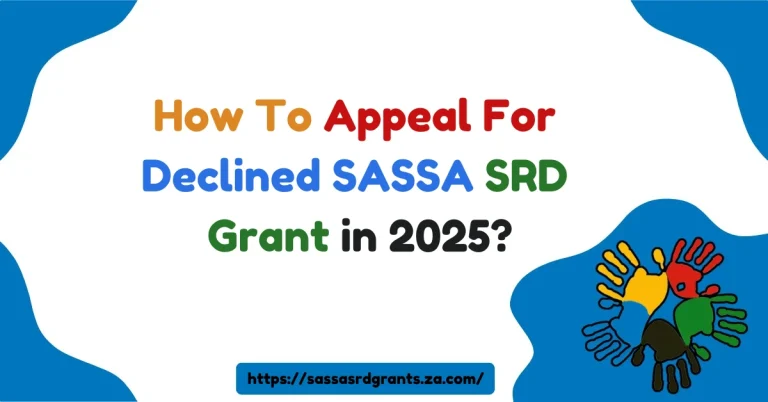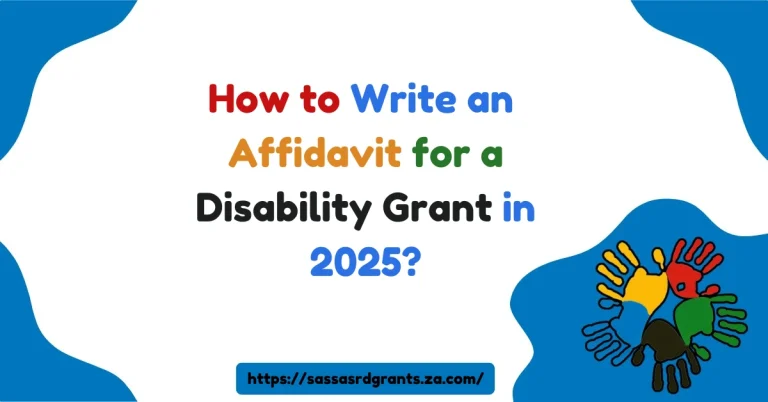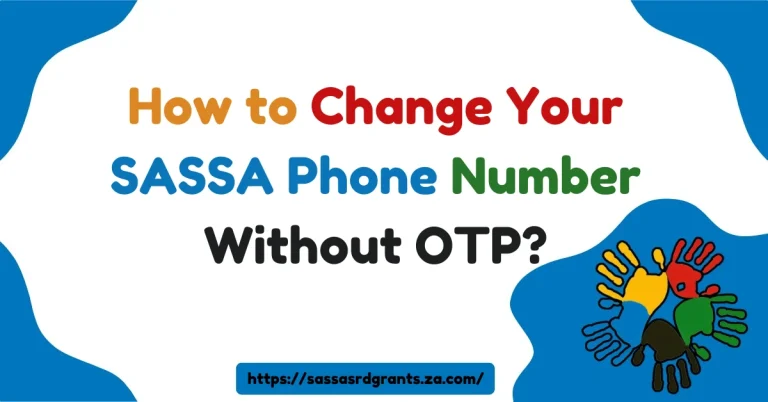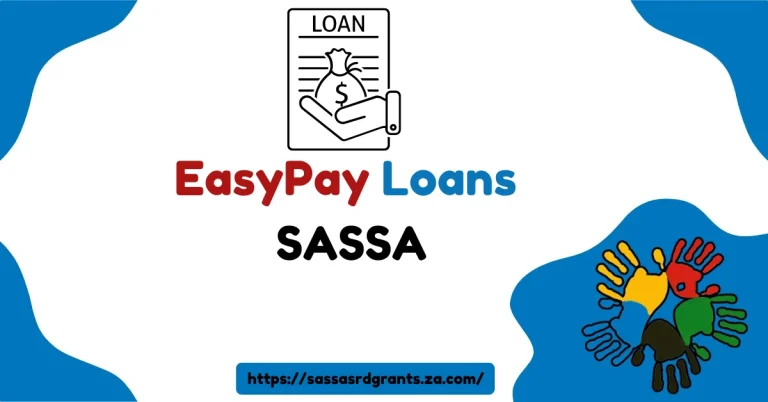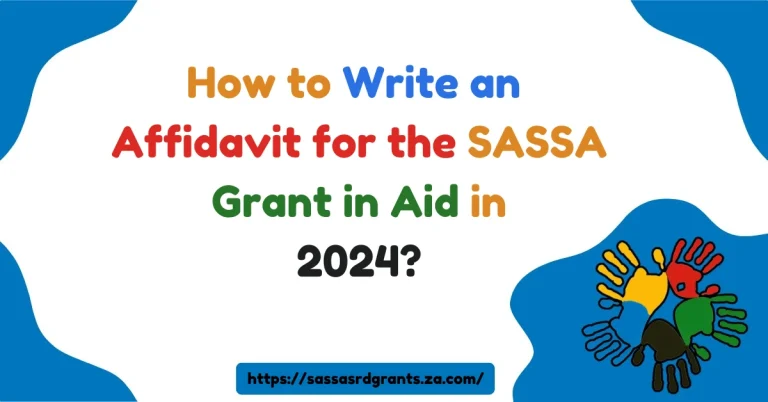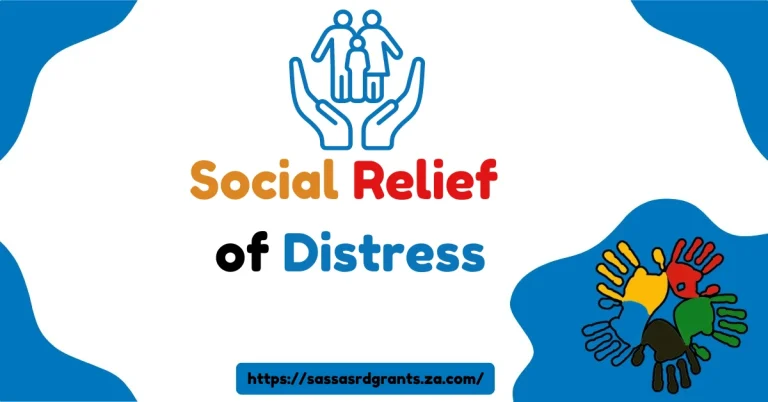How to Write SASSA Affidavit for All SASSA Grants in 2025?
As someone who has personally gone through the SASSA grant application process, I understand how overwhelming it can feel. One of the most important steps in this process is writing a SASSA affidavit. This document is not just a formality—it’s a sworn statement that verifies the accuracy of your information and plays a critical role in securing your grant.
In this guide, I’ll walk you through everything you need to know about writing a SASSA affidavit in 2025. Whether you’re applying for the Older Persons Grant, Child Support Grant, or any other SASSA grant, this guide will help you create a strong, accurate affidavit that meets all requirements.
How to Write SASSA Affidavit for All SASSA Grants in 2025?(Quick Answer)
To write a SASSA affidavit for 2025, follow these steps:
- Title: Write “Affidavit of [Your Full Name].”
- Personal Details: Include your ID number, address, and contact info.
- Purpose: State the specific SASSA grant and reason for the affidavit.
- Declare Facts: Provide truthful financial or personal details.
- Sign and Notarize: Sign, date, and have it sworn by a Commissioner of Oaths. Keep it clear and accurate!
What is a SASSA Affidavit?
A SASSA affidavit is a legal document that confirms the truthfulness of the information you provide in your grant application. It’s a sworn statement made under oath, and it’s used by the South African Social Security Agency (SASSA) to verify your eligibility for financial assistance.
This document is essential for both new applications and grant renewals. Without a properly completed and sworn affidavit, your application may be delayed or even rejected.
Why Are SASSA Affidavits Important?
SASSA affidavits serve several critical purposes:
- Verify Information: They help SASSA confirm that the details you’ve provided are accurate and truthful.
- Support Applications: Affidavits strengthen your case by providing additional evidence for your grant request.
- Aid Renewals: When renewing your grant, a new affidavit ensures your information is up-to-date.
- Resolve Issues: If there are problems with your grant payments, an affidavit can help clarify the situation.
Types of SASSA Affidavits in 2025
SASSA offers various grants, and each requires a specific type of affidavit. Here’s a breakdown of the most common ones:
1. Older Persons Grant Affidavit
This affidavit is for seniors applying for the Old Age Grant. It typically includes:
- Financial status details
- Marital status declaration
- Proof of residence
- Identity verification (focusing on age)
2. Child Support Grant Affidavit
For parents or guardians applying for the Child Support Grant, this affidavit covers:
- Child’s birth certificate information
- Parent or guardian details
- Income and employment status
3. Grant-in-Aid Affidavit
This affidavit is for individuals who need extra assistance due to physical or mental conditions. It includes:
- Health condition details
- Caregiver or guardian information
- Level of dependency declaration
4. Disability Grant Affidavit
For the Disability Grant, your affidavit should cover:
- Nature of disability
- Medical assessments (attach supporting documents)
- Impact on daily life and work ability
5. War Veterans Grant Affidavit
While there’s no official form, this affidavit should state:
- Service in South African armed forces during World War II or the Korean War
- Dates of service
- Supporting military documents
6. Care Dependency Grant Affidavit
This affidavit is for caregivers of children with severe disabilities. It includes:
- Child’s medical condition
- Caregiver details
- Impact on child’s daily functioning
7. Foster Child Grant Affidavit
For foster parents, this affidavit covers:
- Foster child’s details
- Foster parent information
- Court order details (if applicable)
- Biological parents’ status (if known)
How to Write a SASSA Affidavit in 2025
Writing a SASSA affidavit doesn’t have to be complicated. Follow these steps to ensure your document is accurate and complete:
Step 1: Download the Official Form
Visit the SASSA website to download the correct affidavit form for your specific grant. Using the official form is crucial to avoid rejection.
Step 2: Gather Required Information
Before filling out the form, collect all necessary details, such as:
- Personal information (ID number, address, contact details)
- Grant-specific details (e.g., medical reports for disability grants)
- Supporting documents (birth certificates, proof of income, etc.)
Step 3: Fill Out the Form
- Use a form-filling software on your computer or smartphone for clarity.
- Type clearly and avoid handwriting if possible.
- Double-check all information for accuracy.
Step 4: Attach Supporting Documents
Include copies of relevant IDs, certificates, or medical reports as required.
Step 5: Sign and Date the Affidavit
Make sure to sign and date the affidavit where indicated.
Step 6: Get It Sworn
Visit a police station or Commissioner of Oaths to have your affidavit sworn and stamped.
Step 7: Make Copies
Keep a copy for your records before submitting the original.
Step 8: Submit the Affidavit
Attach the affidavit to your grant application or renewal form and submit it to SASSA.
Tips for Writing a Strong SASSA Affidavit
- Be Honest: Provide truthful information only.
- Be Detailed: Include all relevant facts, but keep it concise.
- Use Clear Language: Write in simple, easy-to-understand terms.
- Proofread: Check for errors or missing information.
- Stay Updated: Regularly check the SASSA website for any changes in requirements.
Common Mistakes to Avoid
- Using Unofficial Forms: Always use the latest official SASSA forms.
- Providing Incomplete Information: Fill out all sections fully.
- Forgetting to Sign: An unsigned affidavit is invalid.
- Submitting Without Swearing: Ensure it’s properly sworn before a Commissioner of Oaths.
- Including Irrelevant Details: Stick to information directly related to your grant application.
Final Thoughts
Writing a SASSA affidavit is a critical step in securing your grant. By following this guide and staying informed about the latest requirements, you can create a strong, accurate affidavit that supports your application. Remember, honesty and attention to detail are key to success.
For the most up-to-date information or if you have specific questions, contact SASSA directly:
- Phone: 0800 60 10 11
- Email: grantsenquiries@sassa.gov.za
- Website: www.sassa.gov.za
Frequently Asked Questions (FAQ’s)
Q: Can I fill out the affidavit form by hand?
Yes, but typing is preferred for clarity. If handwriting, use black ink and write neatly.
Q: How often do I need to submit a new affidavit?
Generally, you’ll need a new affidavit for each application or renewal. Some grants may require annual updates.
Q: What if I make a mistake on my affidavit?
Don’t use correction fluid. Instead, start over with a new form to ensure clarity and authenticity.
Q: Can someone else fill out the affidavit for me?
While someone can help you fill it out, you must sign it yourself and be present when it’s sworn.
Q: Is there a fee for submitting a SASSA affidavit?
The affidavit itself is free, but you may need to pay a small fee to have it sworn by a Commissioner of Oaths.
By understanding the process and preparing carefully, you can navigate the SASSA grant system more effectively and access the support you need.
